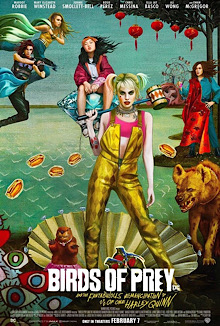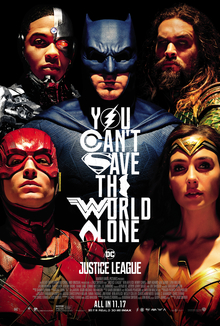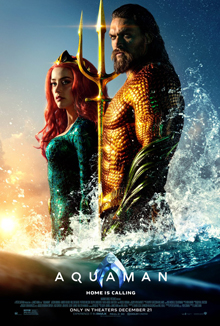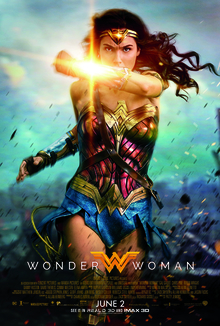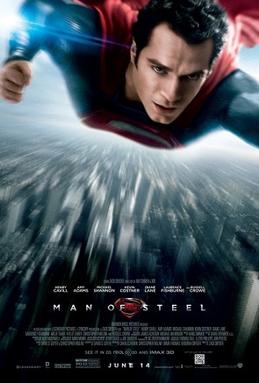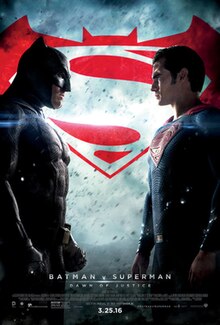One of the reasons it has been so difficult to finish this list is that it is hard to summarize the greatness of these movies in one short article.
And this is especially true about Jaws.
Most people know the dramatic making-of story about this movie. This was a film plagued by so many production problems, particularly with the mechanical shark that this could have utterly destroyed Spielberg's career before it even got started. But this was the movie that I think really made Spielberg into SPIELBERG. He took an untenable situation and decided to use all of his film-making skills to make something so much better than originally planned.
This doesn't take anything away from the screen-writers who crafted a wonderfully character-based film at the heart of what is essentially a monster movie. But if you gave this script to any other director, you would not have one of the greatest movies ever made.
The genius of the movie is how Spielberg makes you an active, not a passive participant in everything that is happening. Because the shark could not work, Spielberg had to rely on inference, always implying the shark's presence without showing it. By doing so, Spielberg forced you to use your active imagination to conjure horrible images in your head. When the young woman at the beginning gets attacked, we can see the terrifying effect above the water. This causes us to to imagine the even-worse cause below the waves. And this happens throughout the entire movie.
But Spielberg knew when to show the shark and how much to show. He credits his editor with making him hold back as much as he did. It was here I think that he learned the real power of editing to make an image powerful or bland. He also knew how to use those visuals to create the right rhythm of thrills for the movie. He did this famously by adding the jump scare in Ben Gardner's boat. The entire scene is filled with wonderful shadows and powerful beams of light until the terror hits. For me, the scariest moment is when the shark breaks through the windows of the sinking Orca. It feels like any remaining safety for our characters is completely shattered.
I am personally fond of the way he shoots the town of Amity. Yes, there are selfish and self-centered people there, but the town is brimming with quaint, small-town life. The world is bright, with American flags and picket fences. As I understand it, the book depicts a town with a seedy underbelly. But in Spielberg's film, Amity may have its problems and its issues with greed, but you can see how much he admires this simply, ordinary life.
He expertly ratchets up the tension in the next shark attack. Without music or any real dialogue cues, he gets you inside the twisted insides of Brody as he looks and hopes to heaven that he is wrong about the shark. Watch how he hides the movement of the camera with his cuts so that you barely notice that you getting uncomfortably close to Brody as he looks at the waterline.
You can see this again on the Orca as Quint sees the movement of the line. Notice all the of tension Spielberg is able to build with a simple pull on some fishing wire. He takes you immediately into Quint's perspective. You see things the way Quint sees them. He fancies himself as the truly observant one while the others are oblivious. And on this occasion he is correct. Little by little, Spielberg threatens you with this phantom menace of the shark.
Throughout the movie you also see the emergence of Spielberg's fondness for the single-take shots. This once again pulls the audience in and makes us feel that we are someone who could be actually at the location, standing with the other characters and eavesdropping on their conversations.
Spielberg actually filmed an earlier introduction of Quint that is charming and comedic. But he wisely removed it so that he could create one of the greatest film entrances of all time. And it is a risky choice. The literal nails on the chalkboard are so repellant that it risks turning us off completely to the character. But it perfectly sums up the character's complete disregard for any other person or their comfort.
Please allow an extended quote from an article I wrote eight years ago about Jaws:
...
Ultimately, the movie is about Martin Brody becoming a real man. We first see him waking up in a very cozy, domestic bed with simple life problems. He says in the movie that he retreated to Amity Island to escape danger. This is a man who avoids danger. They make a big deal about how he never goes into the water. He lets the mayor push him around and change his original decision to close the beaches. He only lets Hooper cut open the tiger shark and go out to sea because he's drunk.
It isn't until his son is attacked that he gets the guts to confront the mayor and force him to take action. What is so important about this moment is that it occurs not before the 3rd act but only half way through the movie. This is only a step on his character arc, not its resolution. Part of manliness is overcoming fear. But that isn't all. This is where the second half of the movie is so insightful.
On the Orca you have 3 men: Quint, Brody, and Hooper. They represent Id, Ego, and Superego respectively. I don't mean to say that the movie is a simplistic allegory, but you cannot deny the psychological space these characters make up.
Let's first look at Quint. He is a man of pure passion. He feels and then acts. Look at his introduction in the movie. Have you ever wanted to scratch a chalkboard even though it hurt your ears? Quint shows no hesitation and goes full throttle on the board, holding nothing back. He cuts through polite society like a knife. He has no manners, insulting anyone and everyone around him.
But he is strong and decisive. He acts on instinct and doesn't question it. When the shark first encounters his line, he barks orders and intuitively understand that the shark is smart and has gone under the boat, even when smarter people like Hooper tell him differently. He barks abuses and others act.
This is because passion is powerful. There are very few things that can motivate us to action like emotion. It is like the fuel that gives energy to the engine. Your GPS might know where to go, but without gas, you are inert. Quint acts with fire and strength. He makes the other men feel inferior and weak.
But Quint is not the image of manliness. He is broken. Listen again to that amazing, Oscar-worthy monologue by Richard Shaw as Quint about the USS Indianapolis:
There are so many wonderful things to pick out here. Notice how it the story has no logical structure. He says they didn't know what the sharks looked like because no distress signal had been sent. Also notice how he doesn't really think about the story, he just feels it. His mood swings wildly.
But I think the most important part is this line: "So, 1100 men went into the water, 316 come out, sharks took the rest."
Quint never actually says that he was rescued. He says he most frightened waiting for his turn, but he never says he got out. Quint was never saved. He never got past that event and he has gone a bit mad. Rationality and willpower have no real place in him. He lost those in the terror of the waters. The sharks took his sanity.
This is why he refuses to get a bigger boat. This is why he destroys the radio (and by doing this cripples the free will by removing the ability to choose rescue). This is why he pushes the engines even though Hooper tells him they will blow. And if that is all there is to a person, they will burn out and die. I will speak more on this later.
But let us turn now our attention to Hooper. He is the intellect or superego of our trio. Brody calls him in with all of his expertise in sharks and Hooper is the on-the-spot expert. Martin listens to him as his intellectual superior.
Hooper is also curious and sarcastic. His main weapons are his wits. A big deal is made out of his scrawniness as he's physically intimidated by fishermen like Quint. He feebly tries to get men out of an overloaded boat and mutters, "They're all gonna die," under his breath.
But he needs to see and examine things. He goes through the remains of the first victim. He cuts open the tiger shark. He swims to examine Ben Gardner's boat in the middle of the night. These things could be considered brave, but I would say it speaks more for his need to know. The intellect needs to have knowledge to feed it.
But Hooper is not the image of manliness either. He has a lot of tools at his disposal and has a wealth of knowledge. The problem is that he is ultimately weak. I don't mean that he is not willing venture out. But he has an inability to succeed on his own. He drops the tooth in Ben Gardner's boat. He drops the poison javelin. He lets Quint beat him down about the engines.
This leaves us with Brody. He represents the ego or the will. And one of the main reasons he is not the man he should be at the beginning of the movie is that his will is weak. As written earlier, he lets himself get pushed around. And he is terrified of making the wrong decision. Notice how he shuts down after Mrs. Kintner confronts him. His job is to make choices and he made the wrong one, which resulted in a boy's death. He loses all confidence.
Except for confronting the mayor, he constantly defers to others. He leans on Hooper's intellect. He tells Quint "You're gonna need a bigger boat." Notice it's not "We're gonna need a bigger boat." He is rely on Quint to kill the shark. He follows Quint's lead and direction.
Martin begins asserting himself, but again assertiveness is not the same as manliness. Notice how he impotently empties his pistol into the shark to no effect. The will by itself cannot accomplish what it needs to accomplish. Neither can the passions or the intellect. But the will is the central and key aspect to manhood.
By themselves, each of these three qualities will lead to ruin. Notice how Quint dies. He made reason his enemy. He cannot think his way out of problems. Notice how blank he becomes when the shark takes down 3 barrels. He is not open to new ways of thinking (though he comes close by helping Hooper with his cage). And so Hooper's oxygen tank roles over his fingers, showing reason and logic rejecting him. He reaches out for the will to save him, represented by Brody. But the full weight of his passions are too much and he slips. into destruction. He was damaged by his past and became a being of pure passion. But that passion ended up leading him back to the fate that he never really escaped to begin with. By not listening to reason or the will he is burned up.
Hooper must hide. He is not the thunderbolt that Quint is and cannot save himself. He has enough knowhow to think his way out of a trap and to avoid confrontation. But he will be overwhelmed. The same is true of pure intellect. You can know what is right and have the correct knowledge of how to do the right. But if you don't have the power or the will to do it, you are stuck.
This is where Brody becomes the model of manliness. He is the will. And manhood is primarily defined by the will. His will starts weak but then becomes strong. As the Orca sinks he does not give in to simple fear. He acts. He plans. Watch how he positions himself ready despite going down.
But he is not simply acting as pure will. Movies like The Matrix Revolutions tried to make the will alone the mark of humanity. But Brody has integrated both the passions and the intellect in its proper place. Notice how he kills the shark: with Quint's rifle and Hooper's oxygen tank. He takes the role of Quint by aiming and firing and acting. He even mutters and shouts obscenities to himself like Quint. But he uses Hooper's brains he actually has a plan. He is not simply shooting wildly. He is actually aiming for the tank to blow up the shark.
Brody becomes a man by using his passions and making a friend of reason. Even in the end, all three are needed. He and Hooper kick their way to shore. But Quint's barrels are what keep them afloat. The passions need to keep us afloat, but they must be our servant, not our masters.
And thus Jaws gives a true vision of manhood: someone who is a creature of action in close union with reason and can muster the passions to bold action.
...
All of this is done with perfect way Spielberg executes his vision. Going back to Quint's monologue, not only it is a marvel of acting and writing, but notice how Spielberg films it. He knows when to keep close on Quint, but through much of the speech, you can Hooper looking on in horror and awe, priming the audience to mirror his emotion.
The sense of isolation is completely intentional on Spielberg's part. They filmed off the coast of Martha's Vineyard, but he was always insistent that they film facing away from the coastland. It really isn't until towards the end of the movie that you can see any land in the distance. You needed this feel so that our characters feel alone.
This is a human story in the truest sense. Human beings seek to overcome the deadliness of nature. In our safety we often forget that there are forces out there that seek to destroy us, not because they are evil, but because nature is violent. But this is not a simple domination of nature. This is survival so that man can be more at home in the world. Notice Brody's last words in the movie: "I used to hate the water." It is said in the past tense. By facing his fears and destroying it, the water is no longer a place of terror. Brody is now at home in the water.
Speaking of that final moment, it is visually arresting. Our heroes are swimming off "into the sunset" away from the camera, which is a classic "goodbye" shot. It is preceded by Brody asking Hooper "Can we get in on those?" meaning the barrels. They use Quint's barrels to make it back, so in a sense, Quint is with them. Not only that, but Brody consults with Hooper's intellect before making the choice. We see again the full mature integration of Brody's passions, intellect, and will. That shot is at their level. In that final moment, Spielberg once again keeps us as active members of the audience, swimming along with our heroes on their journey home. The actually final shot that exists behind the credits is a essentially a landscape where our heroes are completely swallowed up. The purpose is to show us the peaceful serenity of the land that has been restored because of the hero's journey.
You cannot overlook John Williams' iconic score. It is beautiful in its simplicity and its versatility. But people often overlook the more adventurous parts of the score where the shark is being chased or in the shark's final approach, which are equally delightful. But as always, it is Spielberg who knows how and when to use the music for maximum effect.
All of this analysis only serves to highlight the elements of greatness in Jaws, but it does not capture the main reason it has endured: the movie is fun!
I don't use that word to belittle it as a slight amusement. But Jaws is completely thrilling to the emotions, both with its thrills and its humor. It is a horror movie, but you leave feeling like you've watched a great adventure. You feel larger and more alive after sitting through Jaws.
I could go on and on about this movie. It is the movie that pushed Spielberg into the realm of "talented" to "genius." Instead resting on his laurels with this film or trying to repeat the same experience, he did what every artistic genius does: learns from his experiences and uses it to make something new.
This is one of the few movies that I am going to watch for the rest of my life.


